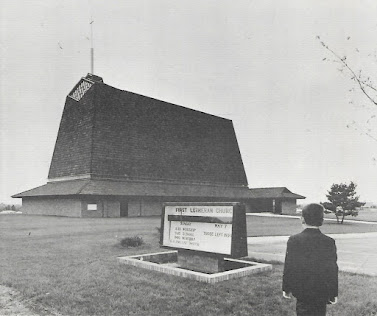We Are Church Together: Expect Disagreements
By Rev. Kristen Van Stee, Associate to the Bishop
Acts 15: 36-41
“After
some days Paul said to Barnabas, “Come, let us return and visit the believers
in every city where we proclaimed the word of the Lord and see how they are
doing.” Barnabas wanted to take with them John called Mark. But Paul
decided not to take with them one who had deserted them in Pamphylia and had
not accompanied them in the work. The
disagreement became so sharp that they parted company; Barnabas took
Mark with him and sailed away to Cyprus. But Paul chose Silas and set out,
the believers commending him to the grace of the Lord. He went through
Syria and Cilicia, strengthening the churches.”
In
the middle of the book of Acts, we read the story of how two early leaders of
the faith, Paul and Barnabas, argued so fiercely that they walked away from each
other in anger, choosing to abandon the other.
They each had a strong opinion on whether a third companion, John Mark,
should be allowed back into the group after failing them before. Sadly, we don’t know if Paul and Barnabas
ever met up again and resolved their differences.
As disheartening
as this short story in the New Testament is, it does serve as a good reminder
that even from the church’s very beginning, disagreements were there too. In fact, disagreements seem to be inevitable
when Jesus calls such different people together to form a new community. With so many cultures, languages, opinions,
and values represented in the entire global church, are we doomed to forever
argue and be at odds with one another like Paul and Barnabas?
Not
necessarily. Disagreements may be
inevitable, but God calls the church to live with one another, forgive one
another, and be reconciled to those who are different from ourselves yet equal
members of the Body of Christ.
Let’s
think of it like our own family. Among a
large extended family of siblings, cousins, and multiple generations, we know
that everyone will have different thoughts and even values. Disagreement will arise among a large and
diverse family as they sit together around the Thanksgiving table or the
Christmas tree. Yet, these disagreements
don’t have to define the extended family.
Although they disagree, their love and respect for one another means
that they should be willing to listen to one another and find ways to not
merely tolerate the other, but reconcile and live joyfully with one
another. Or course, this certainly
doesn’t always happen (perhaps your extended family will argue this
Thanksgiving about the results of the U.S. mid-term elections), but most
families would agree that this ideal is worth working towards.
Then
how much more should the church value community and reconciliation in the midst
of disagreement? Much, much more.
Whether your congregation argues about the color of the carpet, what kind of
Sunday School program is best, or how involved the congregation ought to be in
a controversial social issue, the Holy Spirit still calls us again and again to
stay in community together, work toward consensus, and respect those with whom
we argue. It isn’t easy. In fact, it might be our hardest task as
Christians, and yet it is always worth the effort.
So,
I encourage all of you to embrace disagreements; don’t shy away from them,
because they are in fact inevitable.
Where two or three are gathered in Jesus’ name, those two or three will
have different opinions. And yet, we
also cling tightly to the promise that where two or three are gathered in
Jesus’ name, Christ shows up and holds them together tightly in love.
Grace
and peace to you all Nebraska Lutherans, and may you feel God with you, even
when you disagree.




Comments
Post a Comment